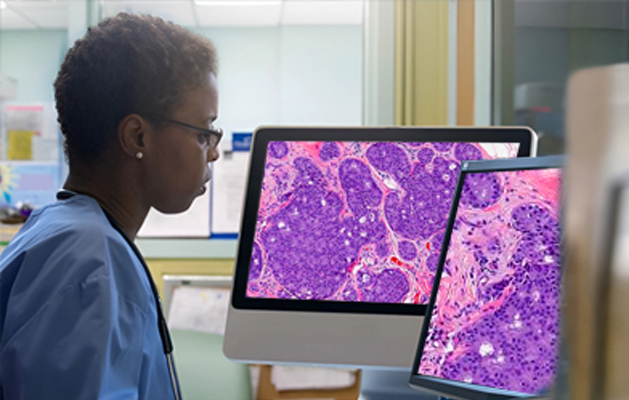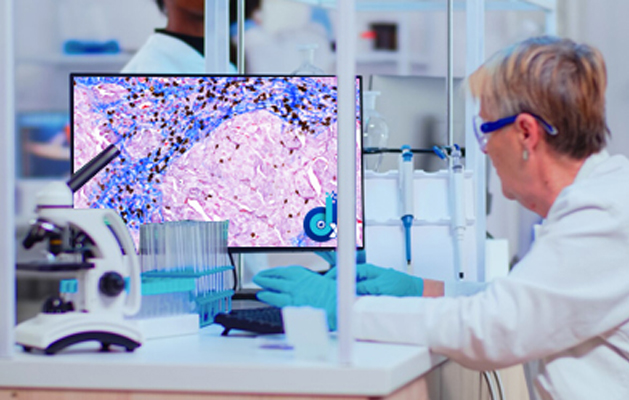Help Desk :
1800 8899 868
info@digidxdoc.com
Koramangala,
Bengaluru


Digital pathology plays a crucial role in the diagnosis and staging of cancer, providing pathologists with detailed insights into tumor morphology, cellular characteristics, and tissue architecture. By digitizing tissue samples and converting them into high-resolution digital images, pathologists can perform remote analysis, collaborate with experts, and leverage image analysis algorithms for accurate diagnosis. Additionally, digital pathology facilitates the integration of multi-modal data, such as molecular profiling and radiological imaging, to enhance cancer diagnosis and treatment planning.
Infectious diseases pose significant challenges for diagnosis due to their diverse etiology, variable presentation, and overlapping clinical features. Digital pathology offers a valuable tool for the rapid and accurate detection of infectious agents, enabling pathologists to visualize microbial pathogens, assess tissue damage, and identify characteristic histopathological patterns. Moreover, digital pathology facilitates the implementation of machine learning algorithms for automated detection and classification of infectious diseases, thereby streamlining the diagnostic process and improving patient outcomes.
Autoimmune diseases are characterized by aberrant immune responses against self-tissues, leading to tissue damage and systemic inflammation. Digital pathology enables comprehensive evaluation of autoimmune diseases by examining tissue specimens for characteristic histopathological features, such as immune cell infiltration, tissue destruction, and deposition of immune complexes. Furthermore, digital pathology facilitates the quantification of immunohistochemical markers and the analysis of spatial patterns within tissue microenvironments, providing insights into disease pathogenesis, prognosis, and therapeutic response.
In conclusion, digital pathology serves as a powerful tool for disease diagnosis across various medical specialties, offering advanced imaging, analysis, and data integration capabilities. By leveraging digital pathology, healthcare professionals can enhance diagnostic accuracy, optimize treatment strategies, and improve patient outcomes in cancer, infectious diseases, autoimmune conditions, and beyond. As technology continues to evolve, the applications of digital pathology are poised to expand, further revolutionizing the practice of medicine and transforming healthcare delivery worldwide.